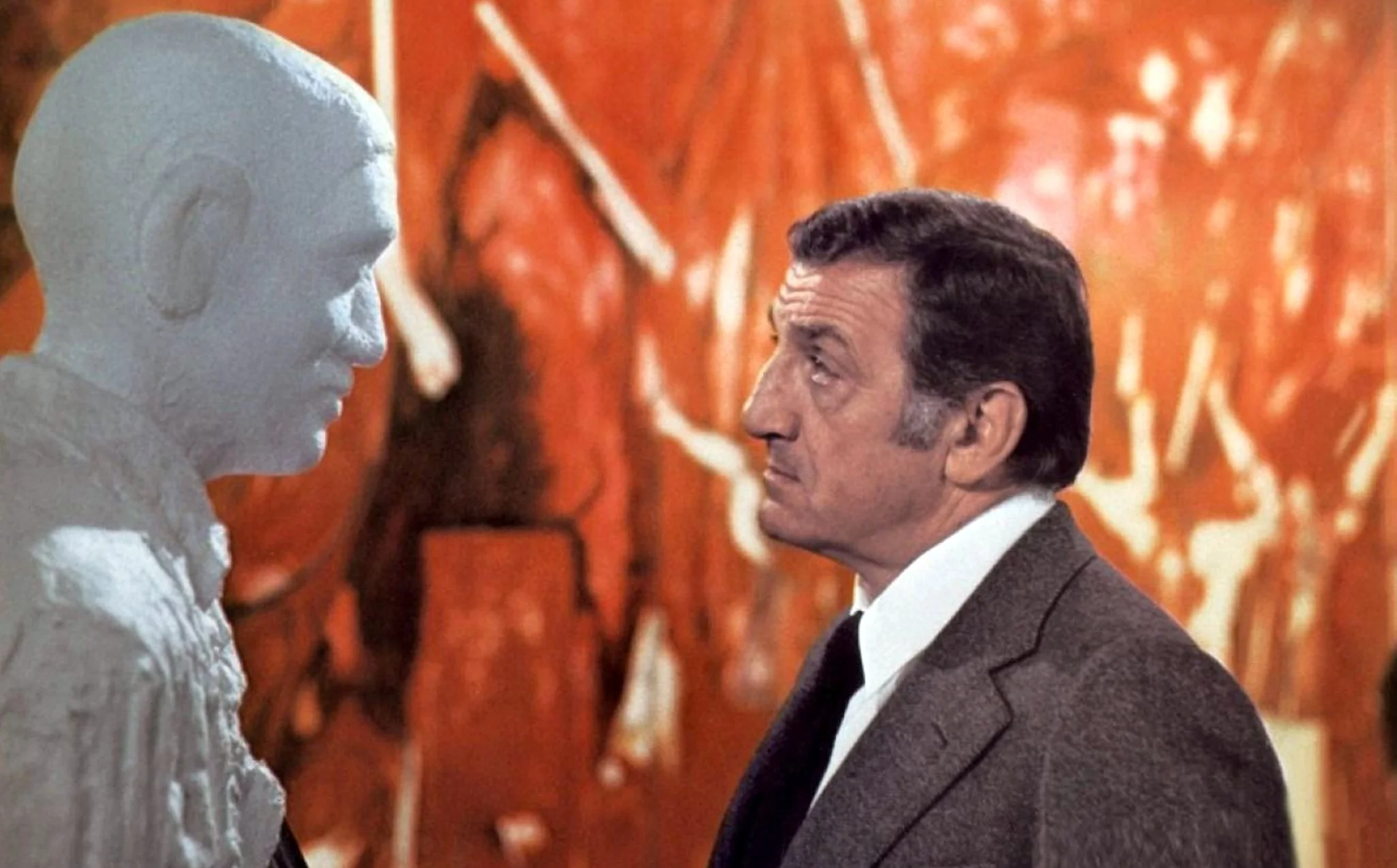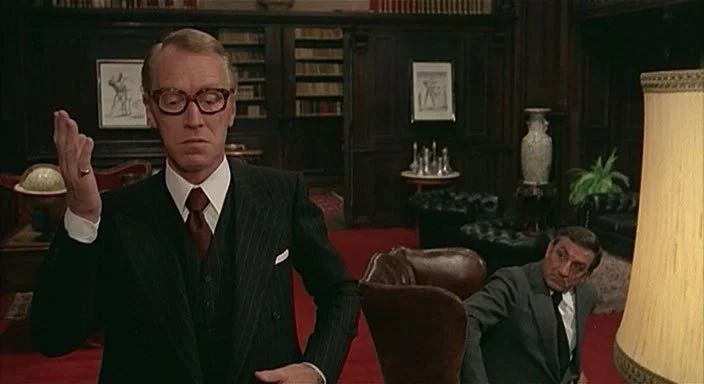TRUTH & METHOD: Francesco Rosi's ILLUSTRIOUS CORPSES (co-wri & dir by Francesco Rosi, w/ Lino Ventura, 115mns, Italy, 1976)
Italian master Francesco Rosi, along with German master Rainer Werner Fassbinder, may be one of the most astute minds ever to tackle political cinema.
A former journalist, Rosi makes hard-nosed, unsentimental, brutal pictures (SALVATORE GIULIANO, HANDS OVER THE CITY, THE MATTEI AFFAIR) about how power and politics really work. His movies are textbooks for anyone who wants to tackle political subjects in their art.
ILLUSTRIOUS CORPSES follows Inspector Rogas (a wonderfully grim and determined Lino Ventura, famous tough guy French movie star who actually was an Italian so this movie is a kind of homecoming) as he investigates the murders of noted Italian judges.
At first, Rogas comes to believe the murders are the result of an unjustly convicted mentally unstable man. But Rogas is too smart to accept that conclusion without testing it. His conversations, investigations, observations make him realize, to his horror, the murders may actually be committed by the Italian government to rile up popular support for a hard right "law and safety" agenda and thus keep the powerful empowered.
The great tough guy star of many French classics, Lino Ventura, was actually Italian and considered himself Italian first. So Illustrious Corpses is a kind of homecoming.
Dave Chapelle once described the entertainment industry as a "cold, cold game". If entertainment is an Antarctic cold game then politics is an outer space cold game.
The 70's in Italy were known as the "Years of Lead". Judges were really being shot by far-left terrorist organizations as a form of war against the far-right policies of the ruling party. A former prime minister was even killed in 1978. But what Rosi wants us to see and understand is that these killings, far from destablizing the ruling party, helped to preserve their power because the killings won middle of the road and apolitical voters, disgusted by the shocking murders, to their side.
This is why an apolitical, even conservative, character like Rogas is critical to the movie. Rogas thinks he's solving a serial killer mystery. But instead he's stumbling into a government conspiracy.
What makes Rosi so great is his refusal to make things simple. Rogas interviews several judges played by European greats Alain Cuny and Max Von Sydow. They are largely unsympathetic, obsessive compulsive, egotistical mandarins with truly reactionary, elitist, authoritarian views of their power and role in the state.
The folks wielding the power, including a smooth Fernando Rey as the Security Minister, are urbane, calm, collected. They don't let on what they know or what their next move will be. It's even hinted that the far right and far left in politics may be united in wanting to exploit the judicial murders for political gain and self-interest.
In the grand tradition of mid-late 20th century European cinema, international stars like Max Von Sydow drop in for what are essentially 1-2 scene supporting turns. Still Sydow makes a great egotistical and dogmatic judge blind to his own impending doom.
ILLUSTRIOUS CORPSES slowly morphs from a fairly paint-by-the-numbers police procedural to a full blown 70's conspiracy thriller a la THE CONVERSATION and THE PARALLAX VIEW. But movies like CORPSES or Fassbinder's THE THIRD GENERATION (1978) are more dangerous than their American counterparts. Because they identify and try to illuminate the real maze-like power machinations that are occurring all the time in real life (versus a heightened cinematic poem on paranoia, which is a lot of fun but ultimately safer).
This writer writes this review in 2025 in a United States of increasing political and civic turmoil where cold political games of manipulation feel more and more blatant. Folks who really understand power can, without the glue of morals, ethics, or circumspection, wield it in shocking and terrifying ways. The game seems to be to energize your base regardless of facts and dishearten your opposition so brutally as to render them ineffectual and harmless.
This near or actual authoritarian playbook has been used again and again throughout history to consolidate power and make the opposition or dissidents appear to be toothless, evil, or ideally both.
Rogas' investigation is a fascinating frustration. The more he understands, the less able he is to affect any real change.
Rosi, the former newspaper person, may have understood that sometimes the mechanisms of power, the people who control them, and the hallways they traffic are near-impenetrable by the average person.
As the mummified corpses of ancient Catholic bishops at the beginning of the film and the cold statues and sculptures of Roman senators, tribunes, consuls, and emperors at the end of the film signify, this game has been played for thousands of years. Students of the craft of real-politik rarely make themselves vulnerable by coming out of the shadows.
But reasonable and intelligent people can see what's going on. And they can make movies like Rosi does that agitate and enrage.
And maybe, every now and then, an actual response that effectuates change is possible.
Craig Hammill is the founder.programmer of Secret Movie Club



